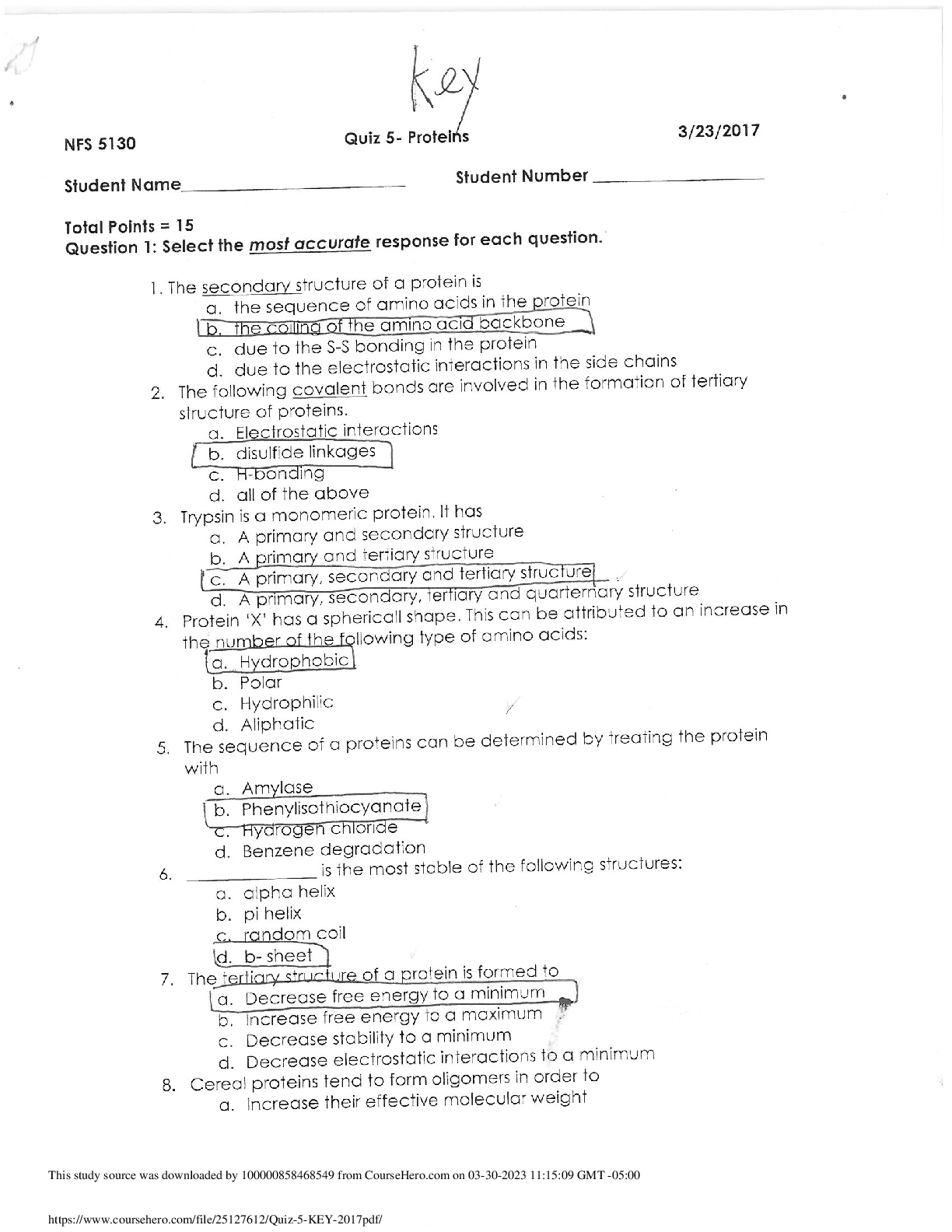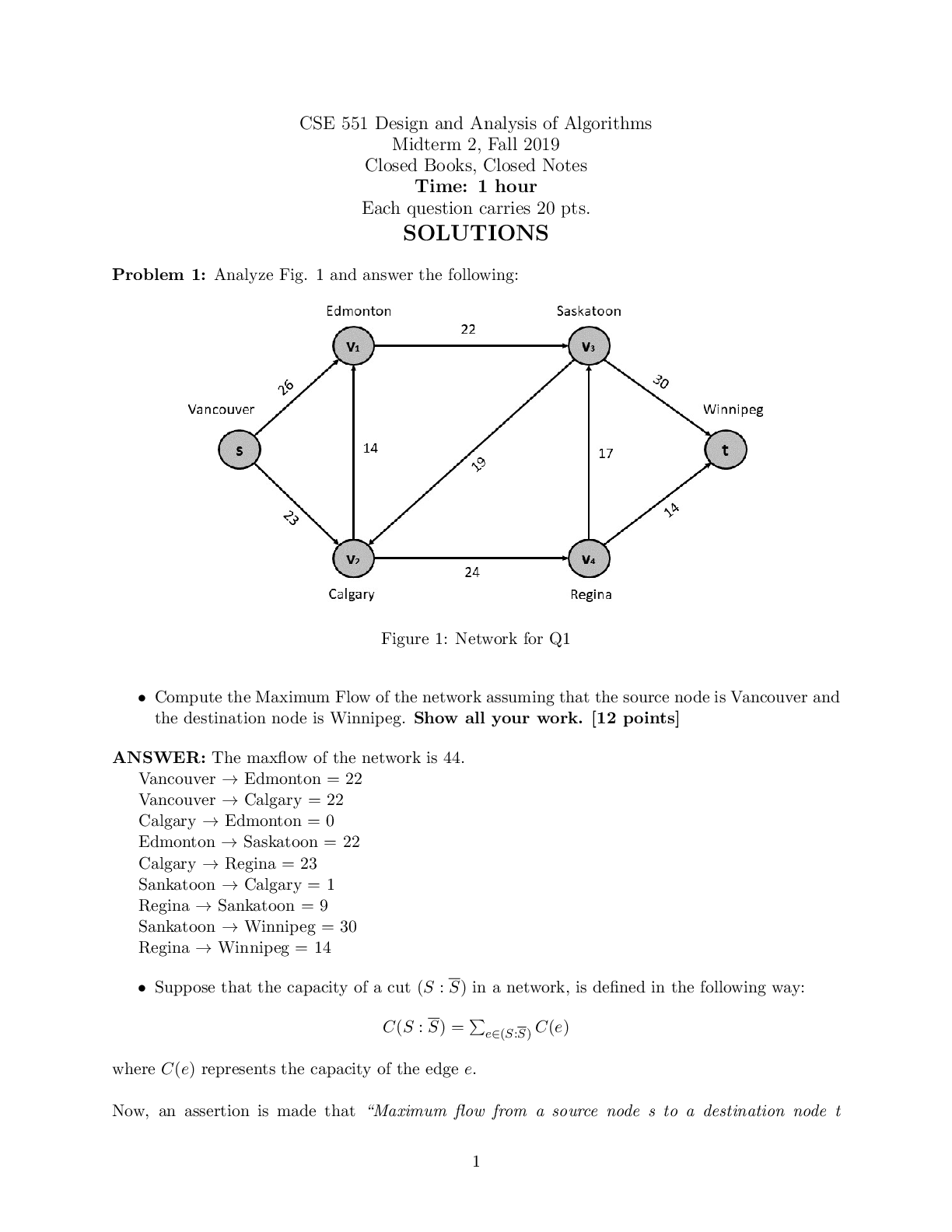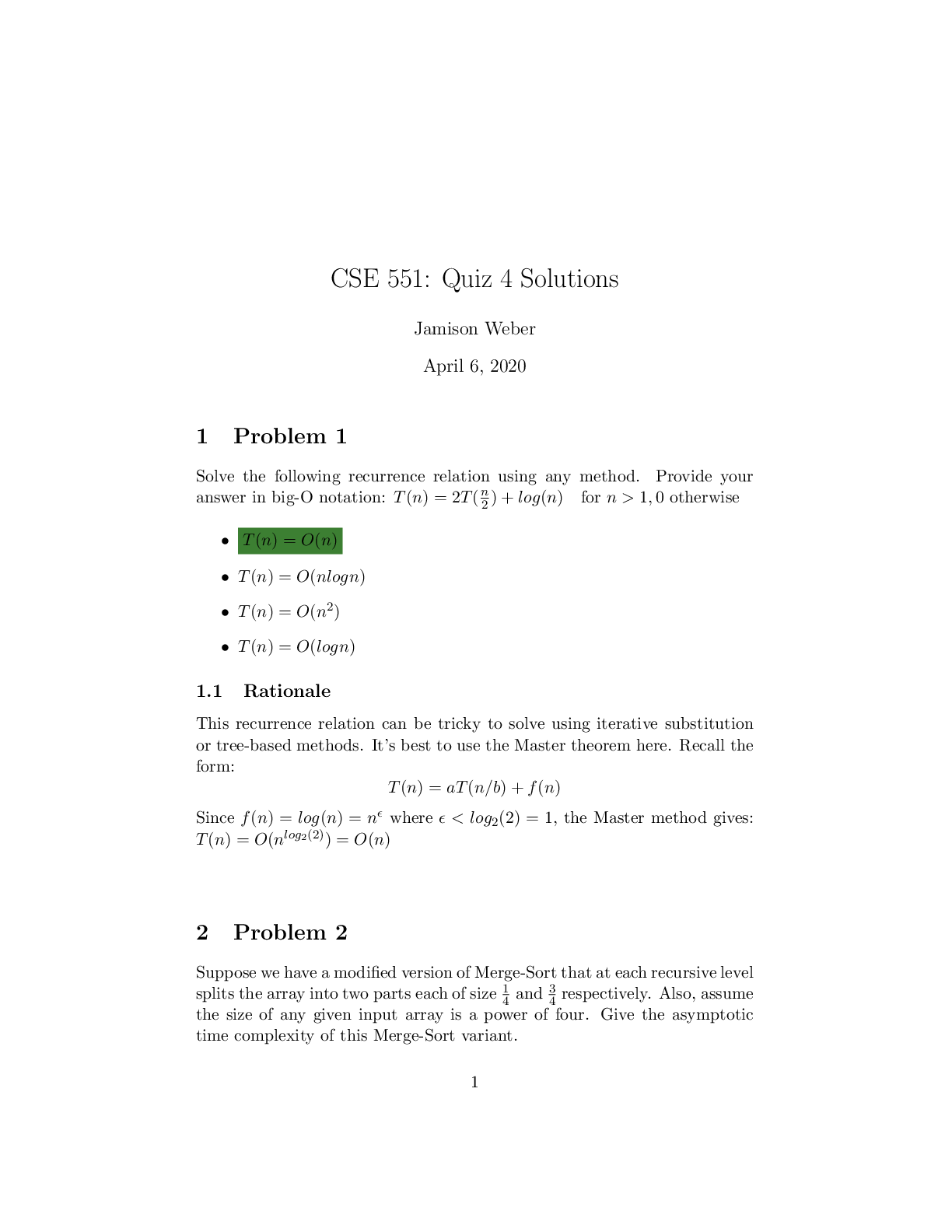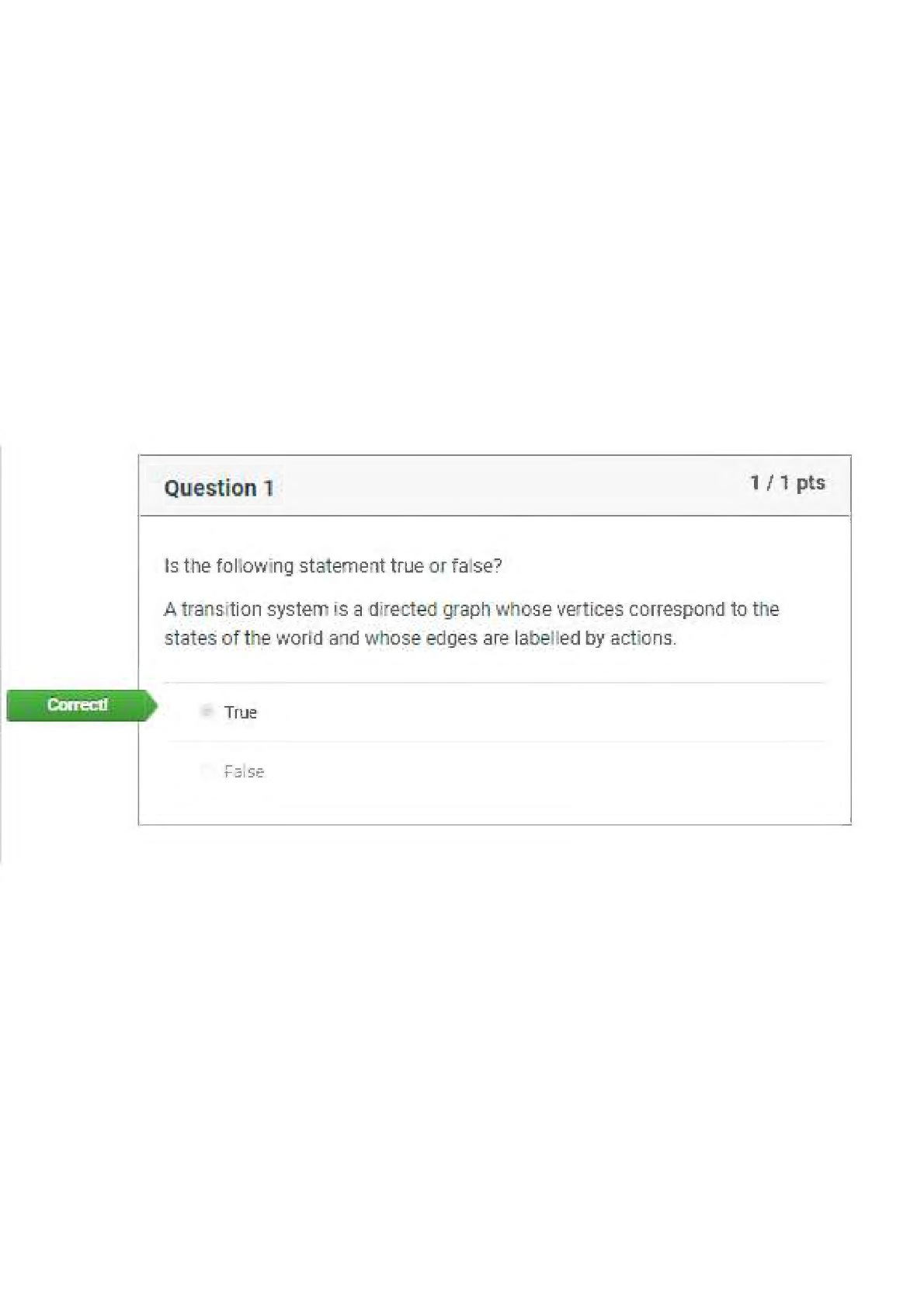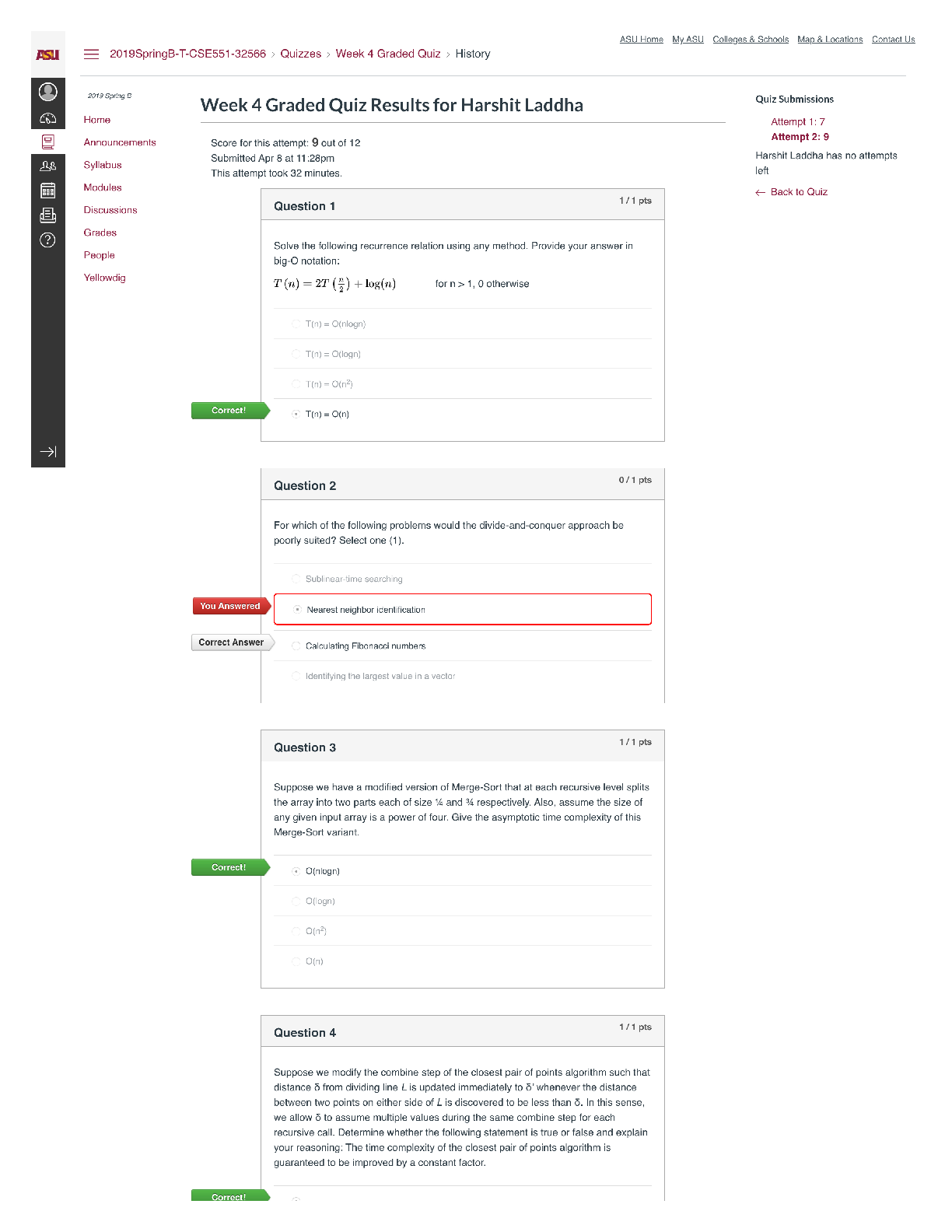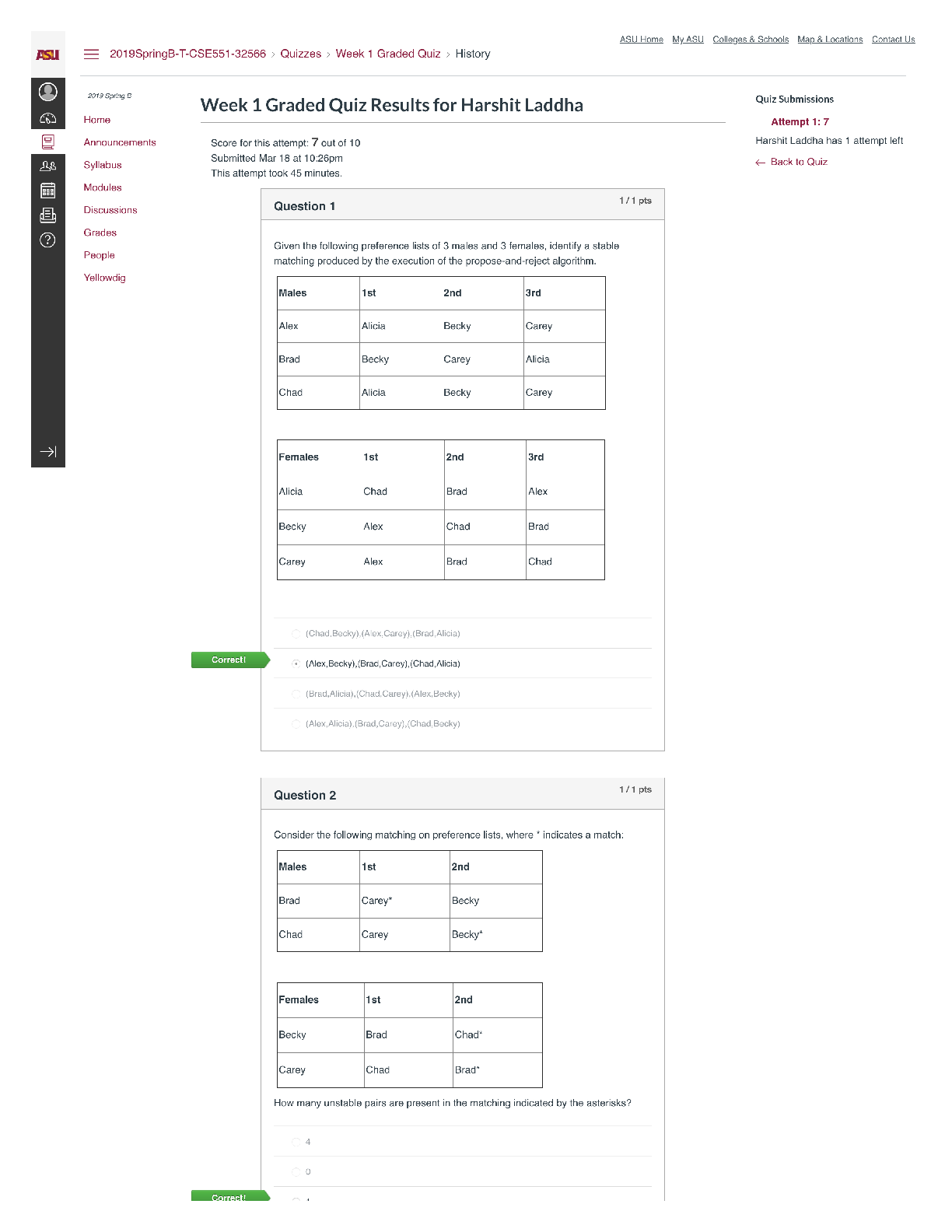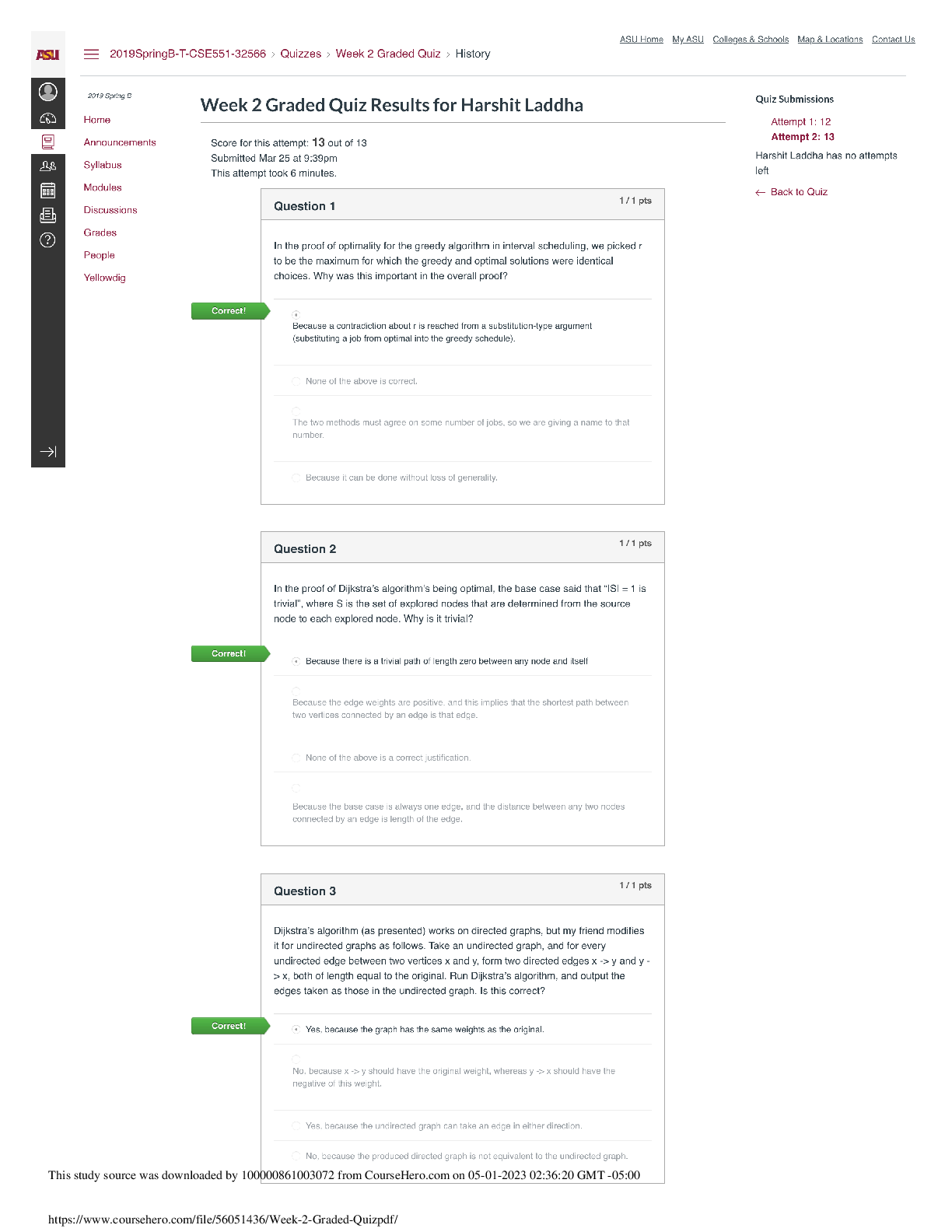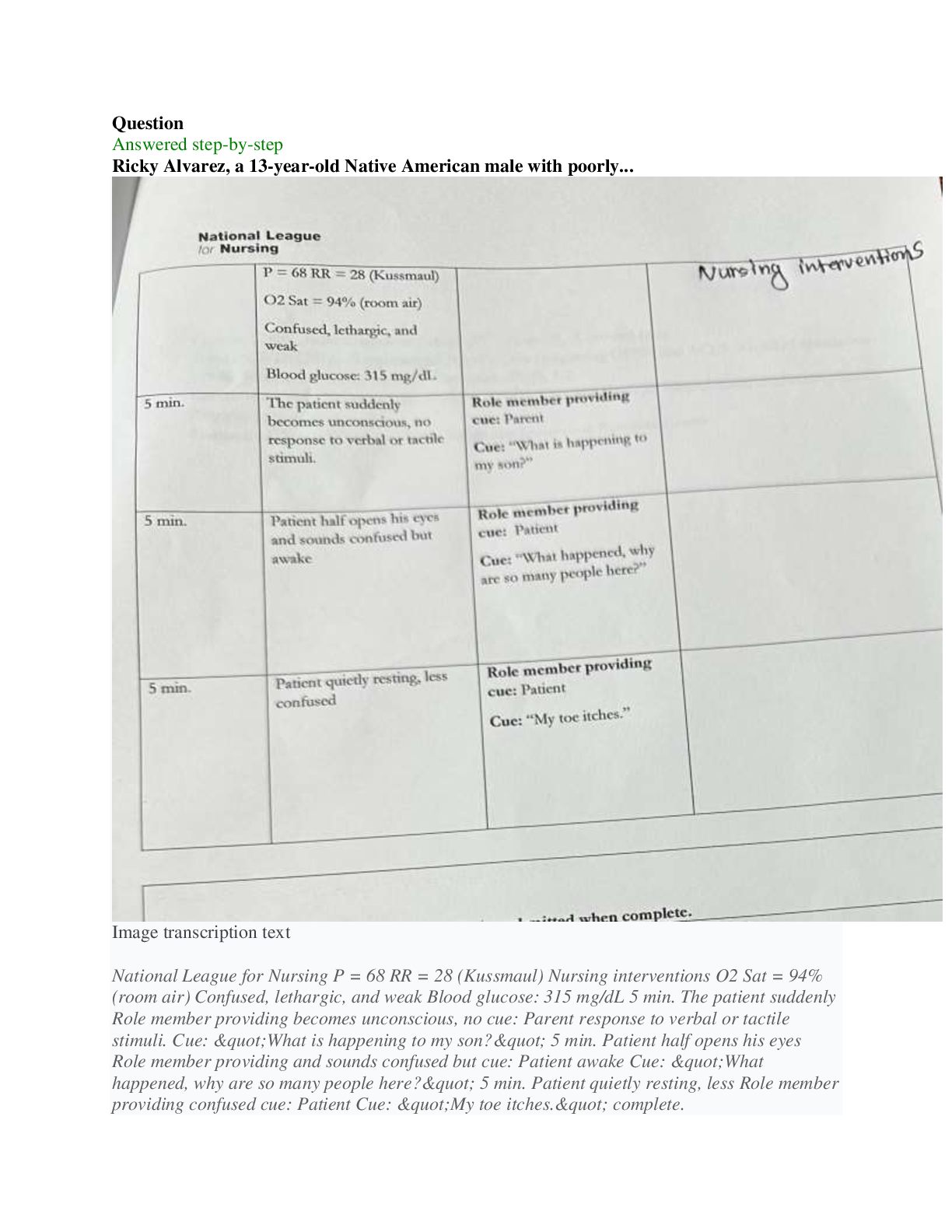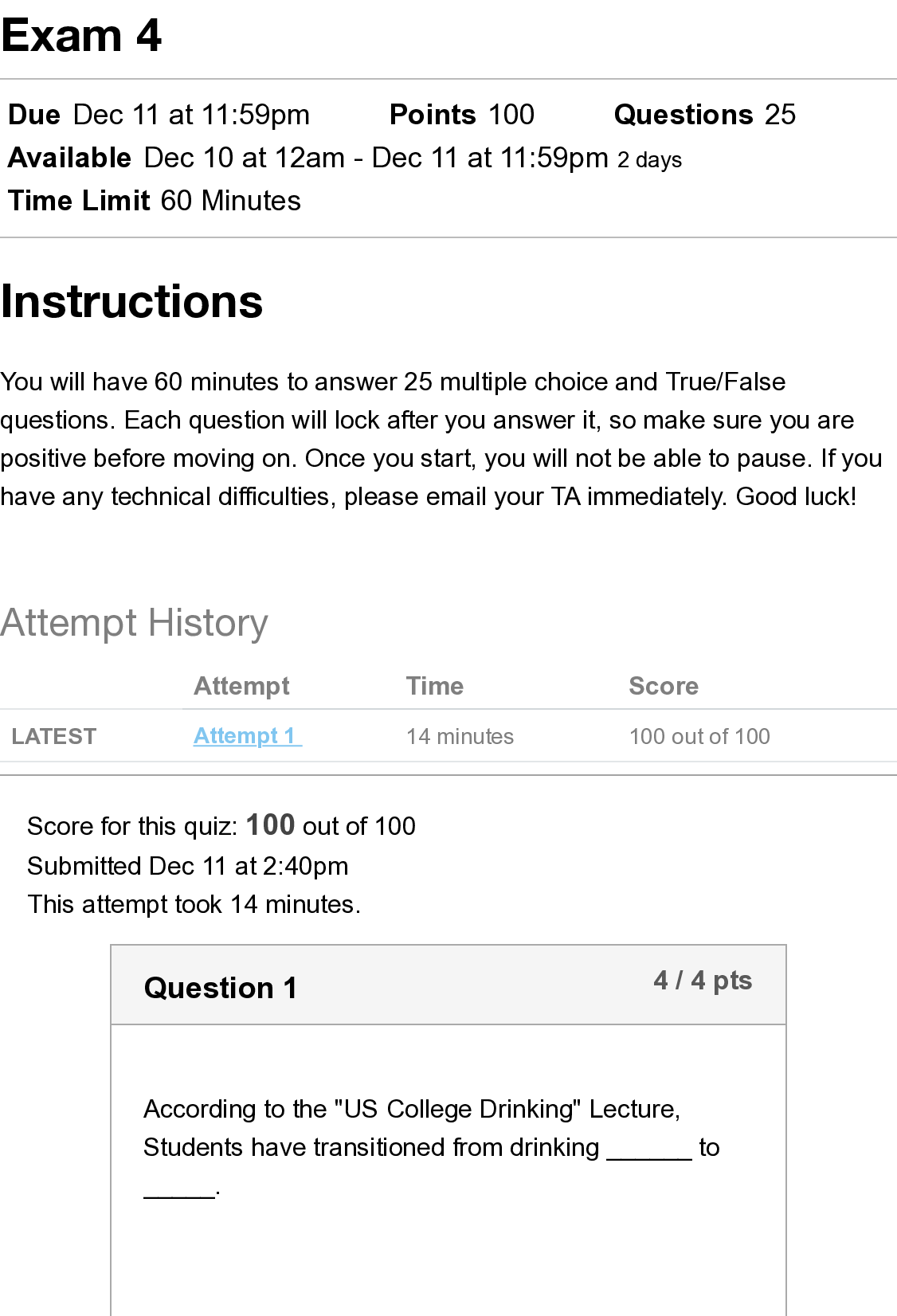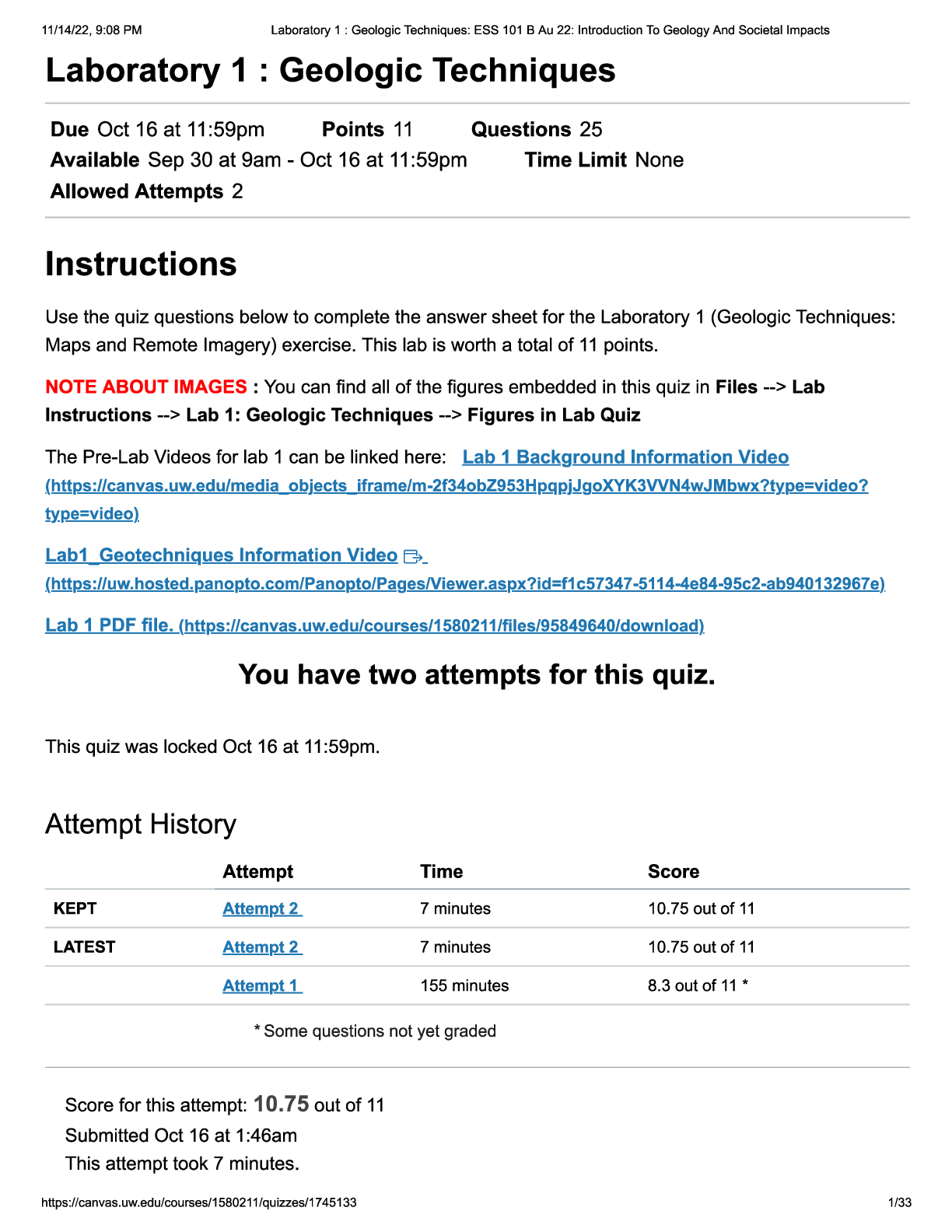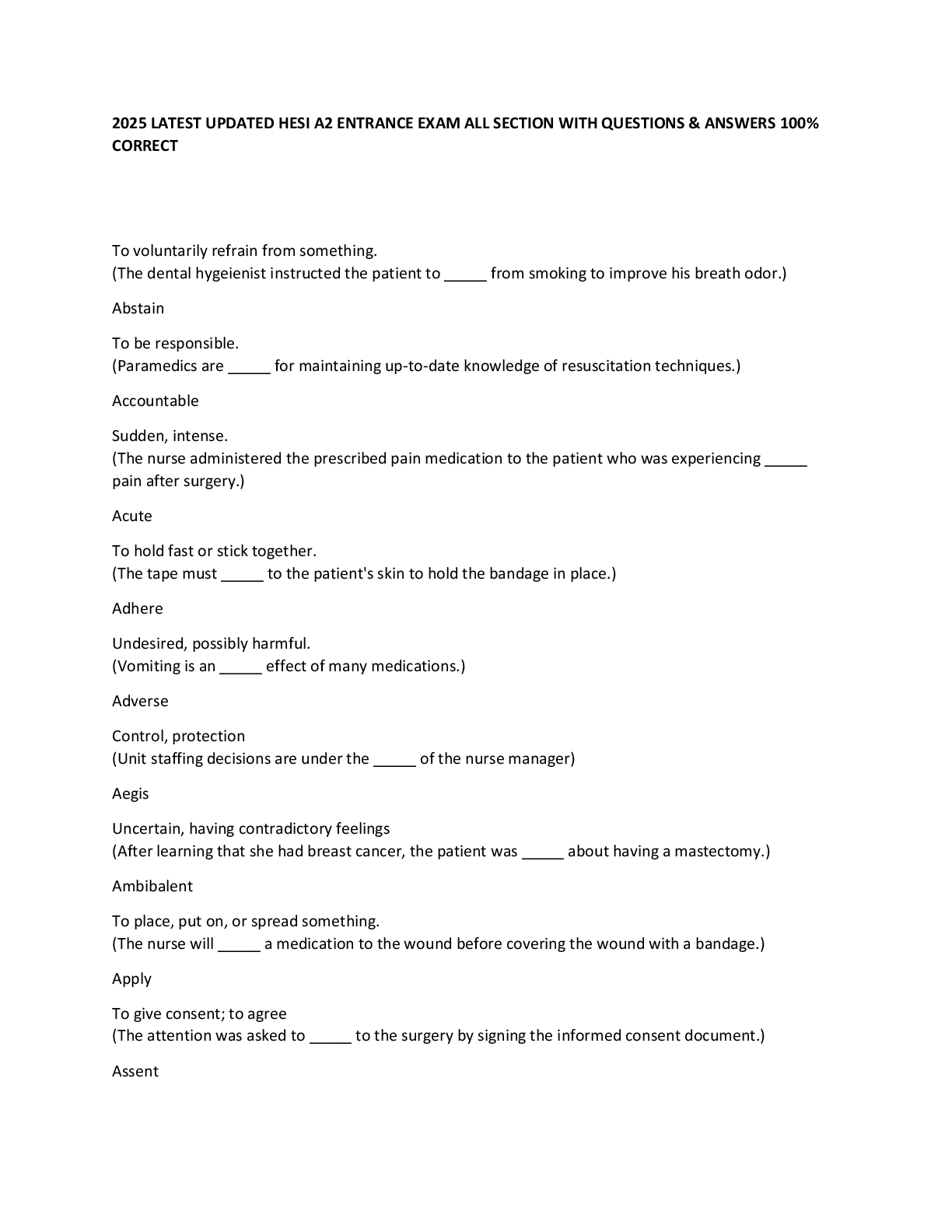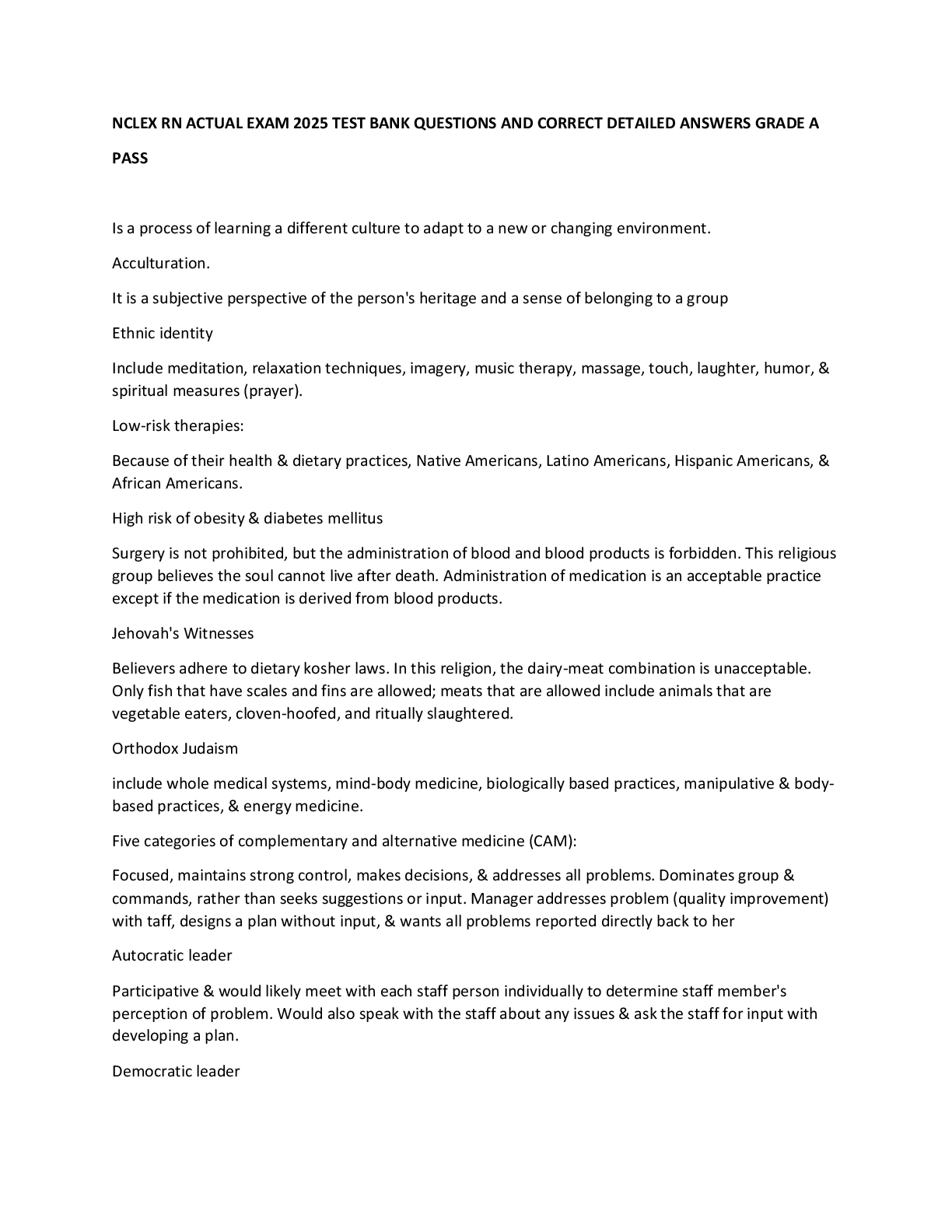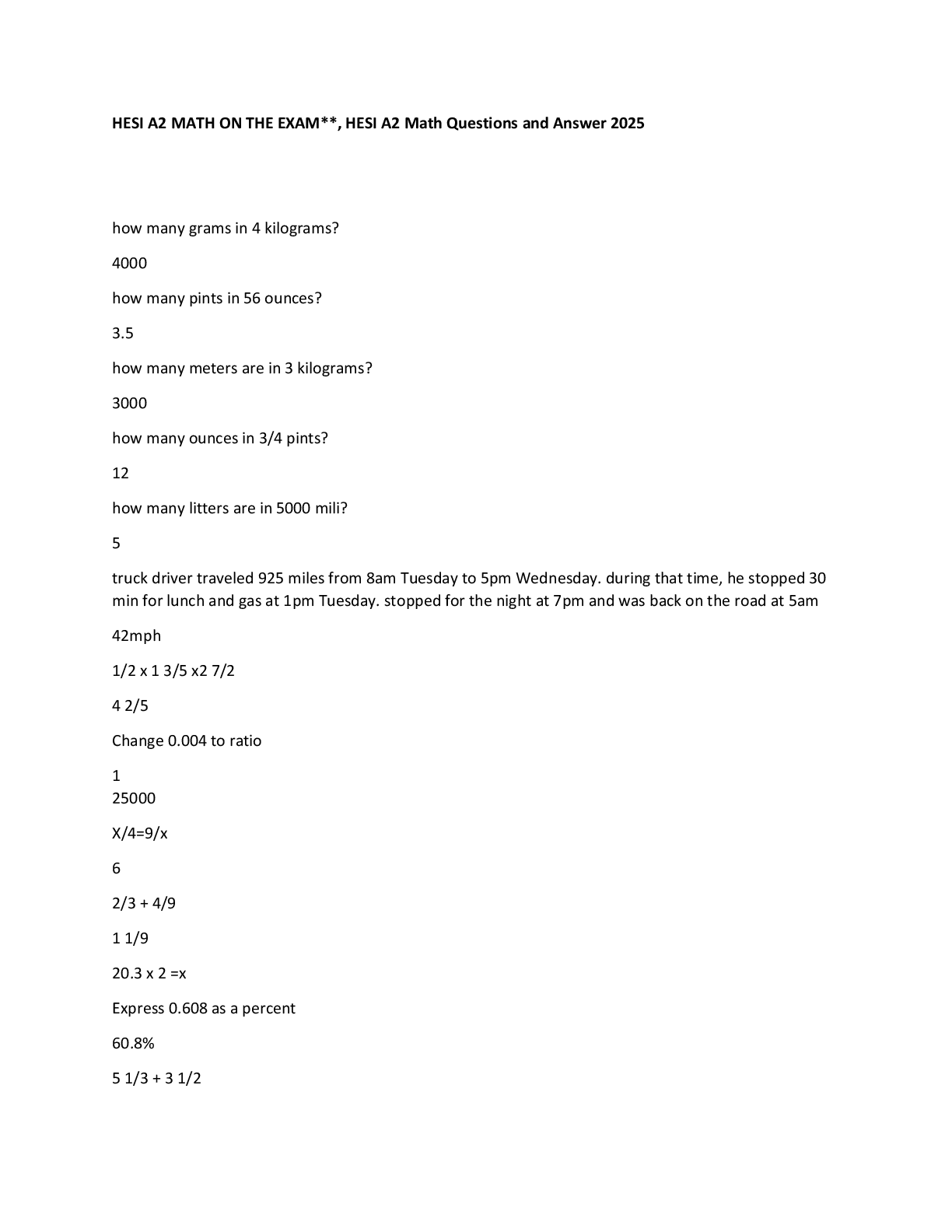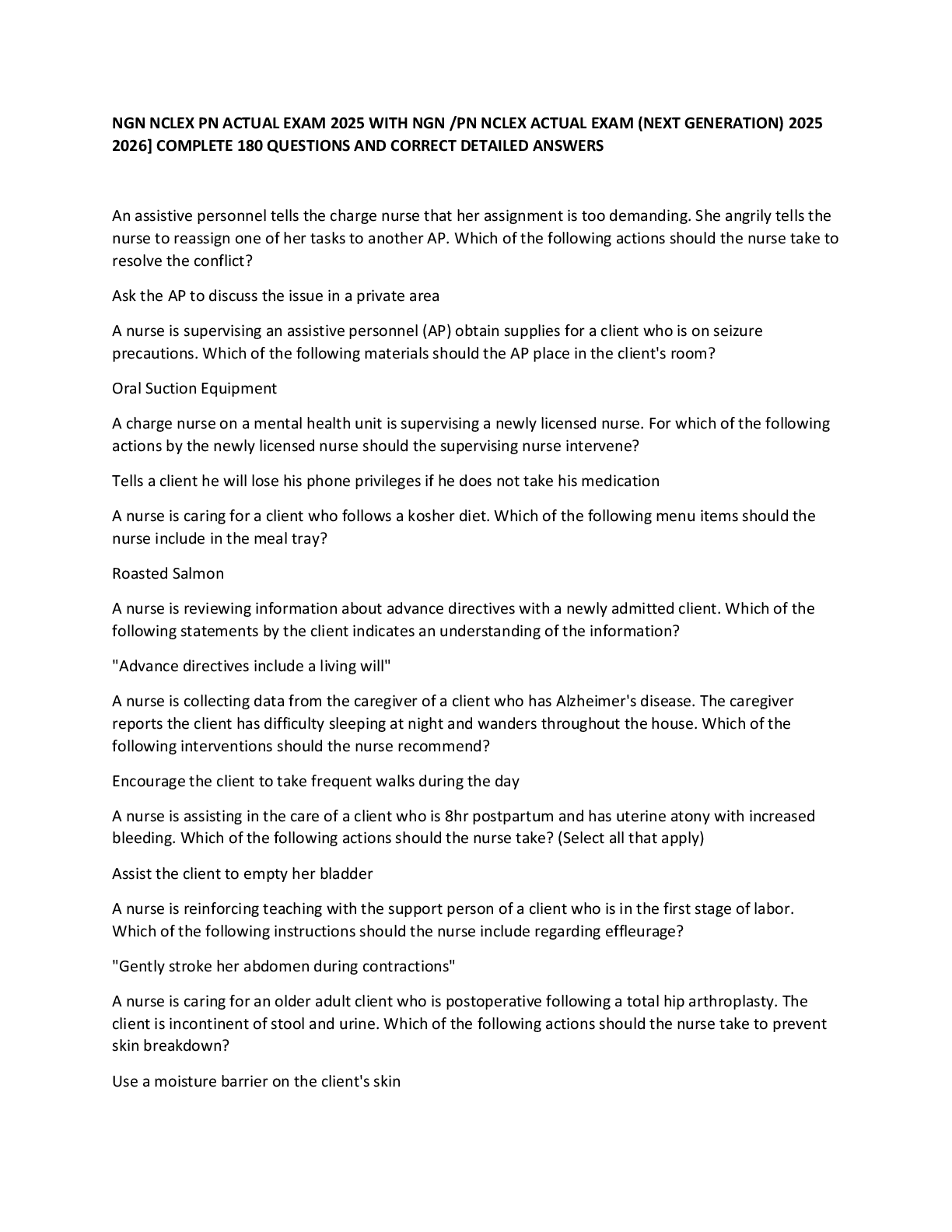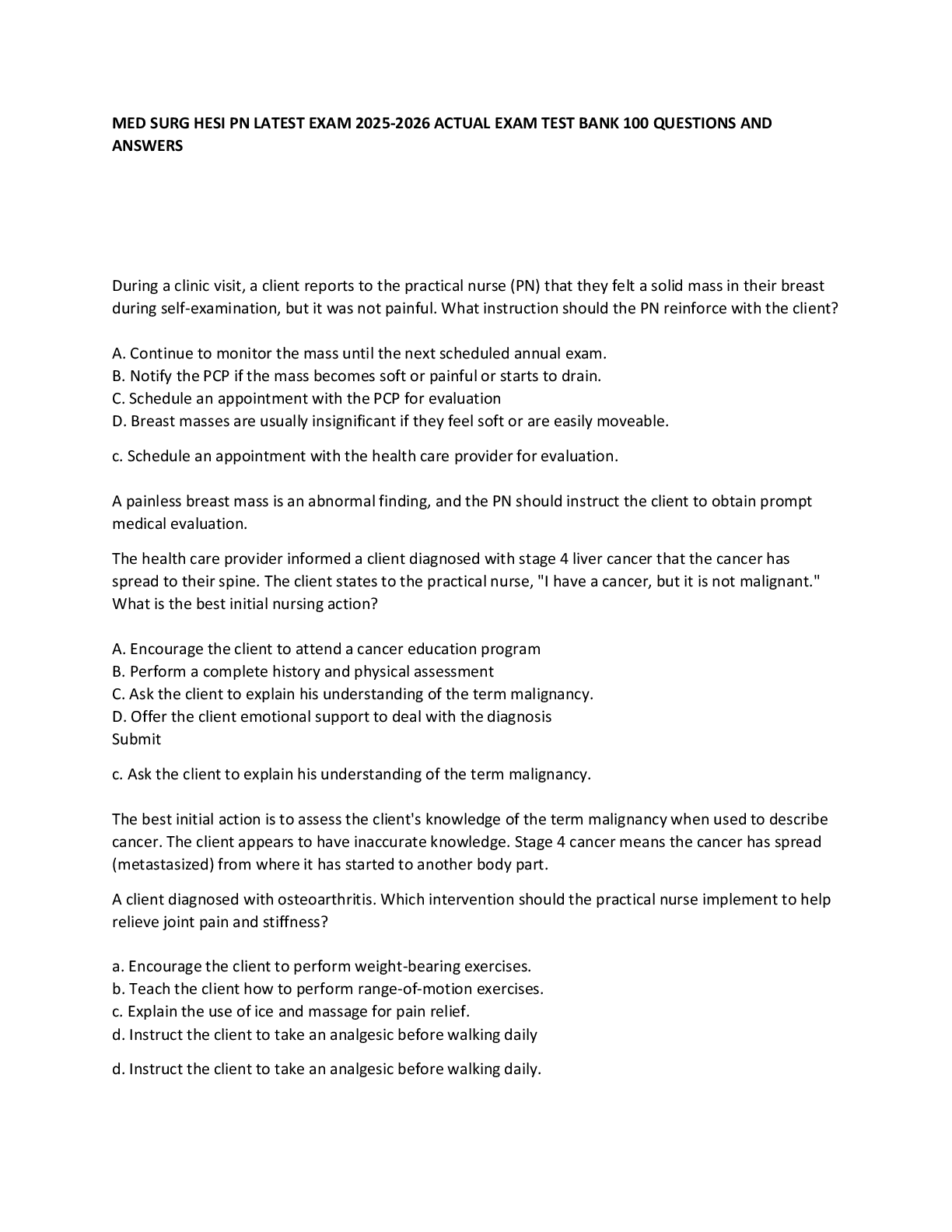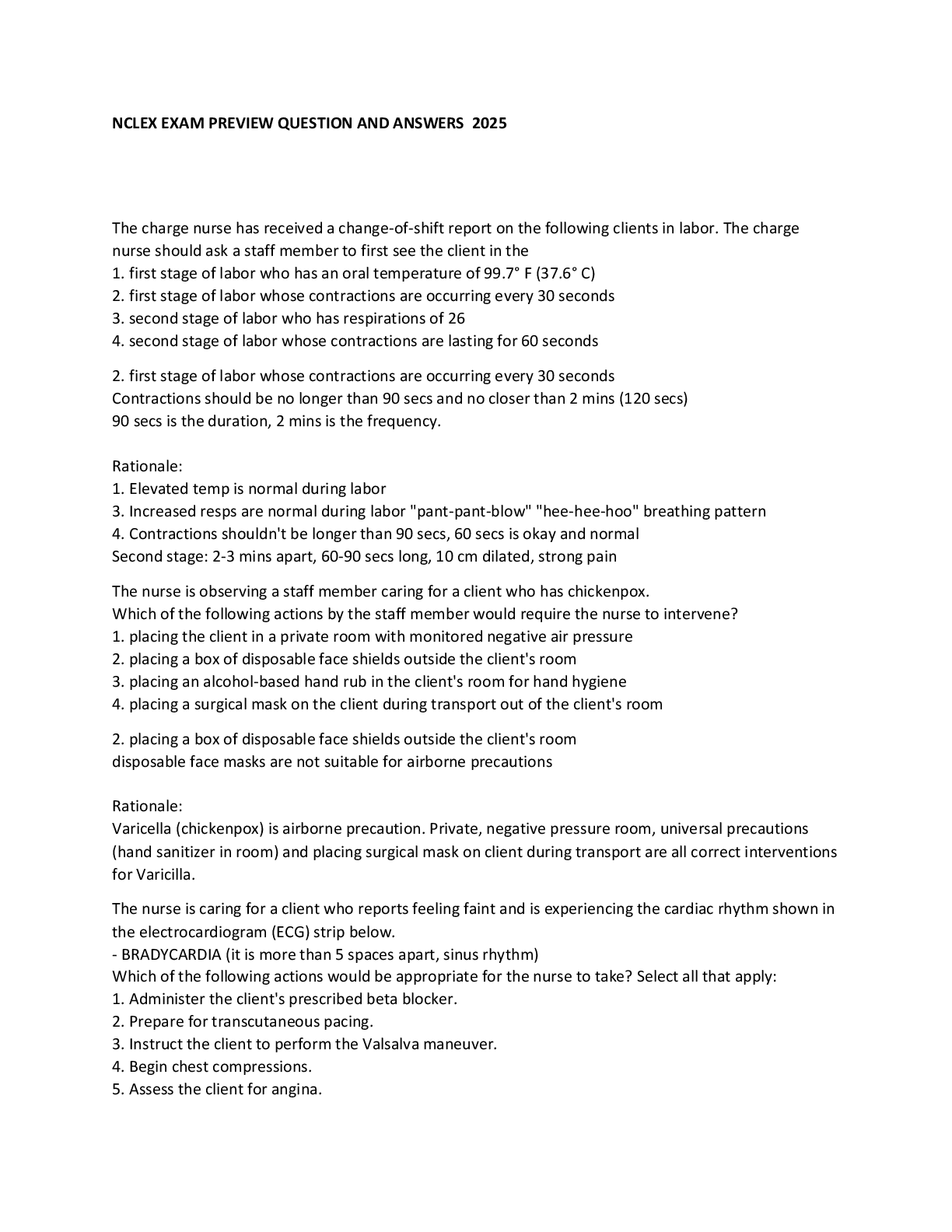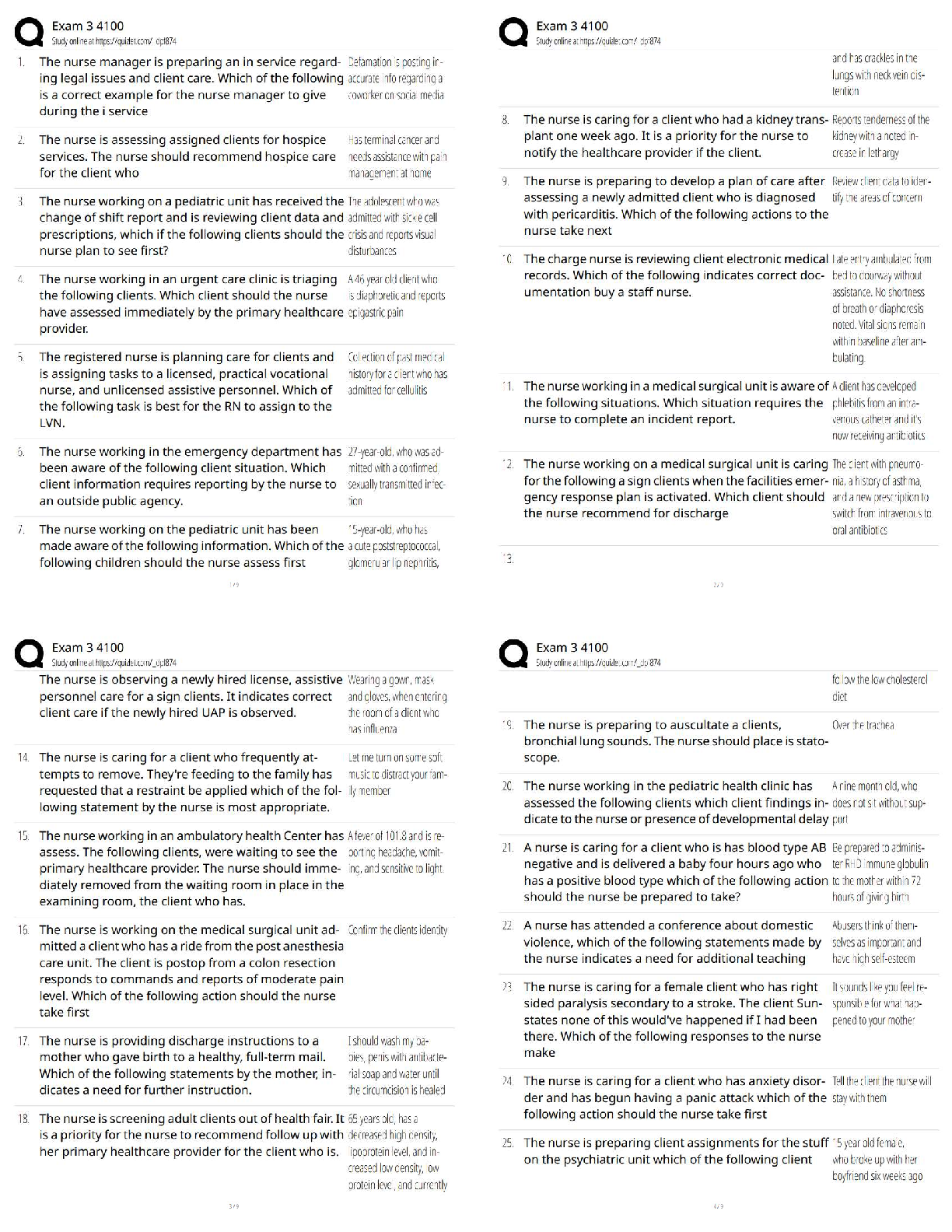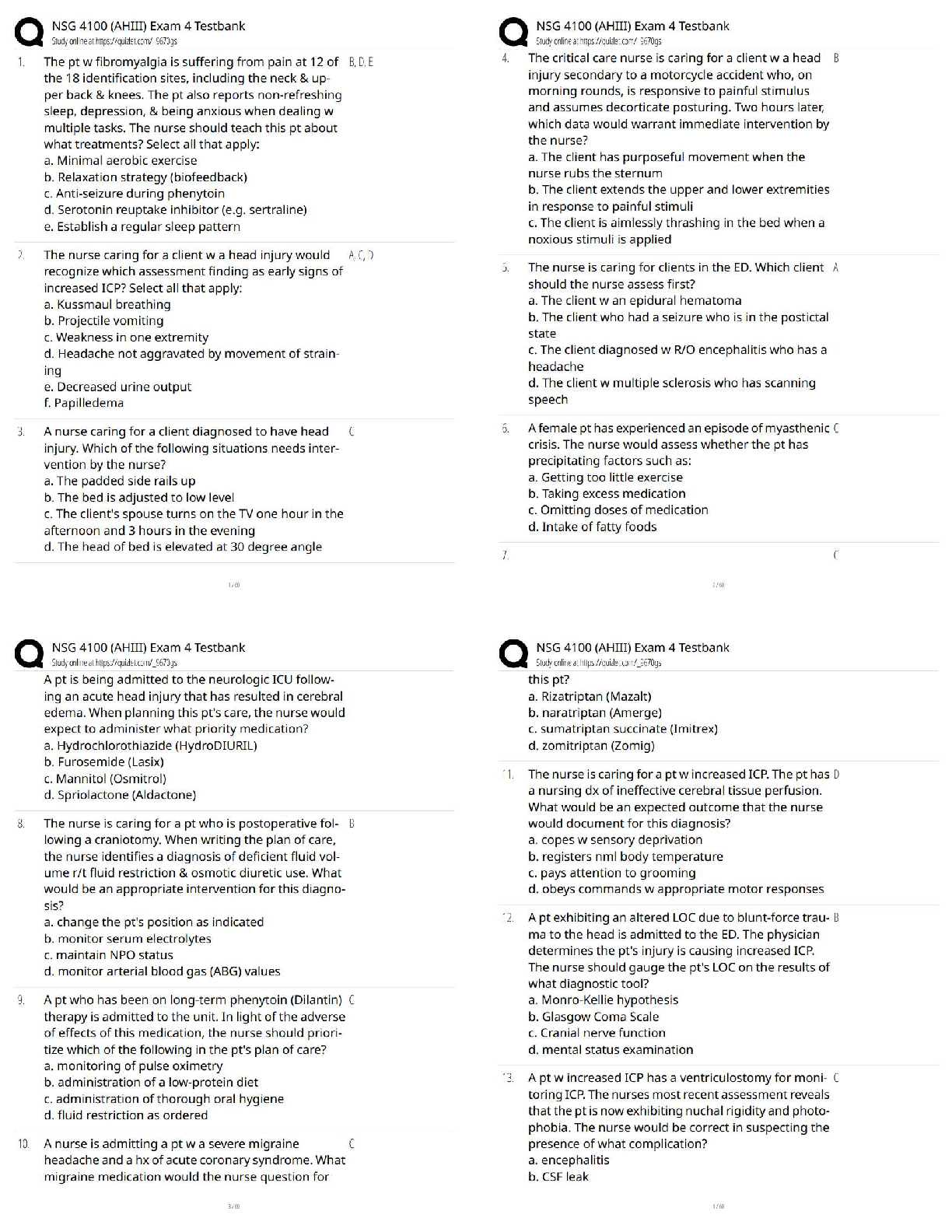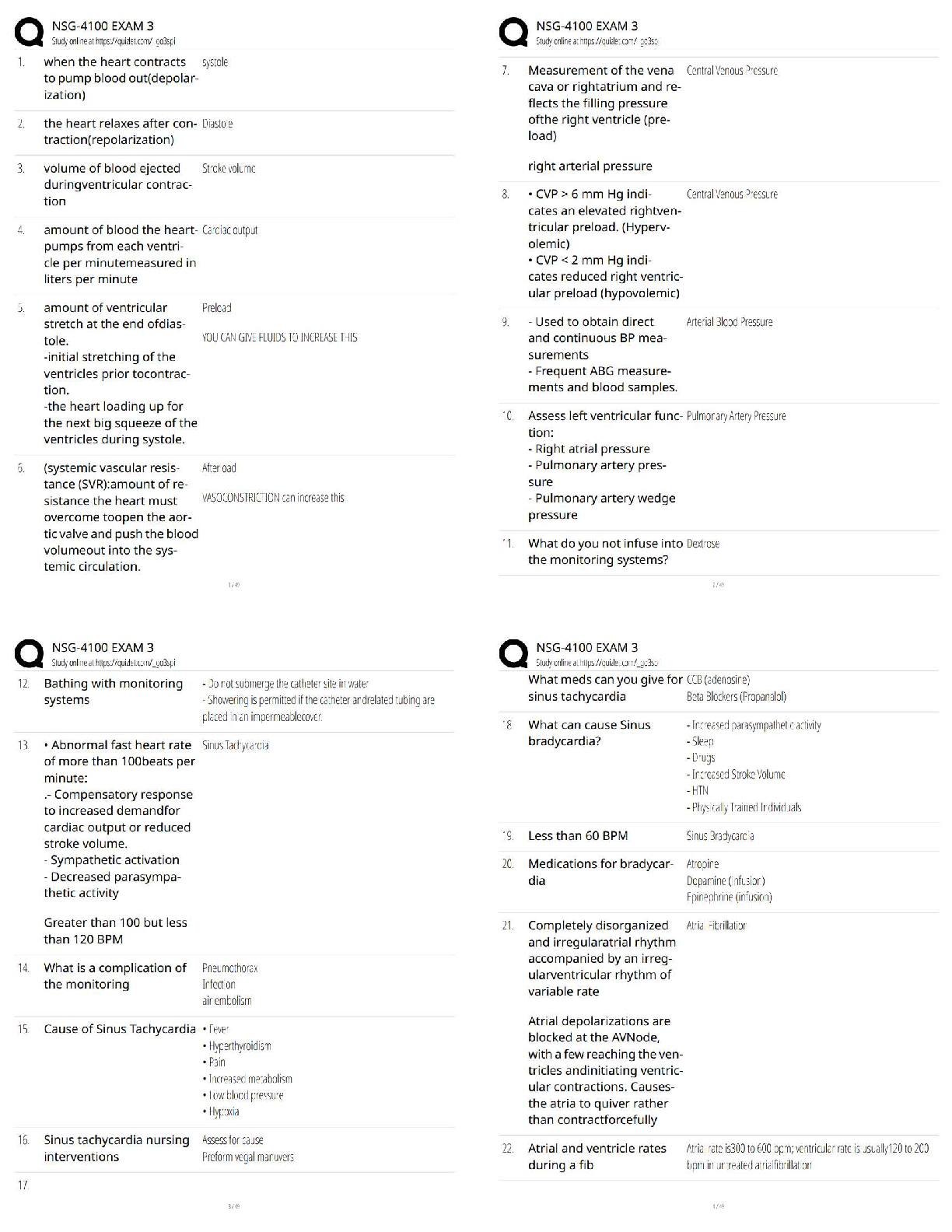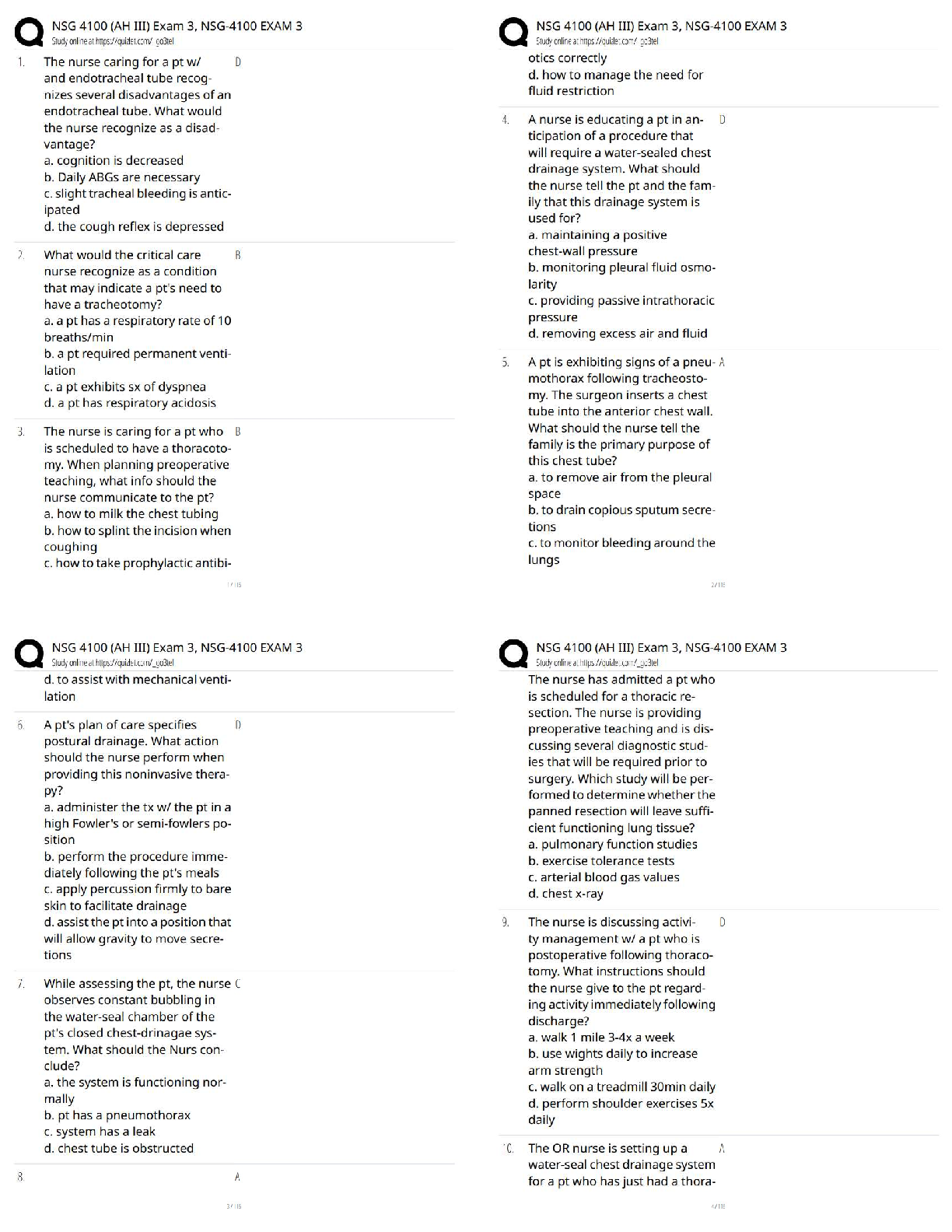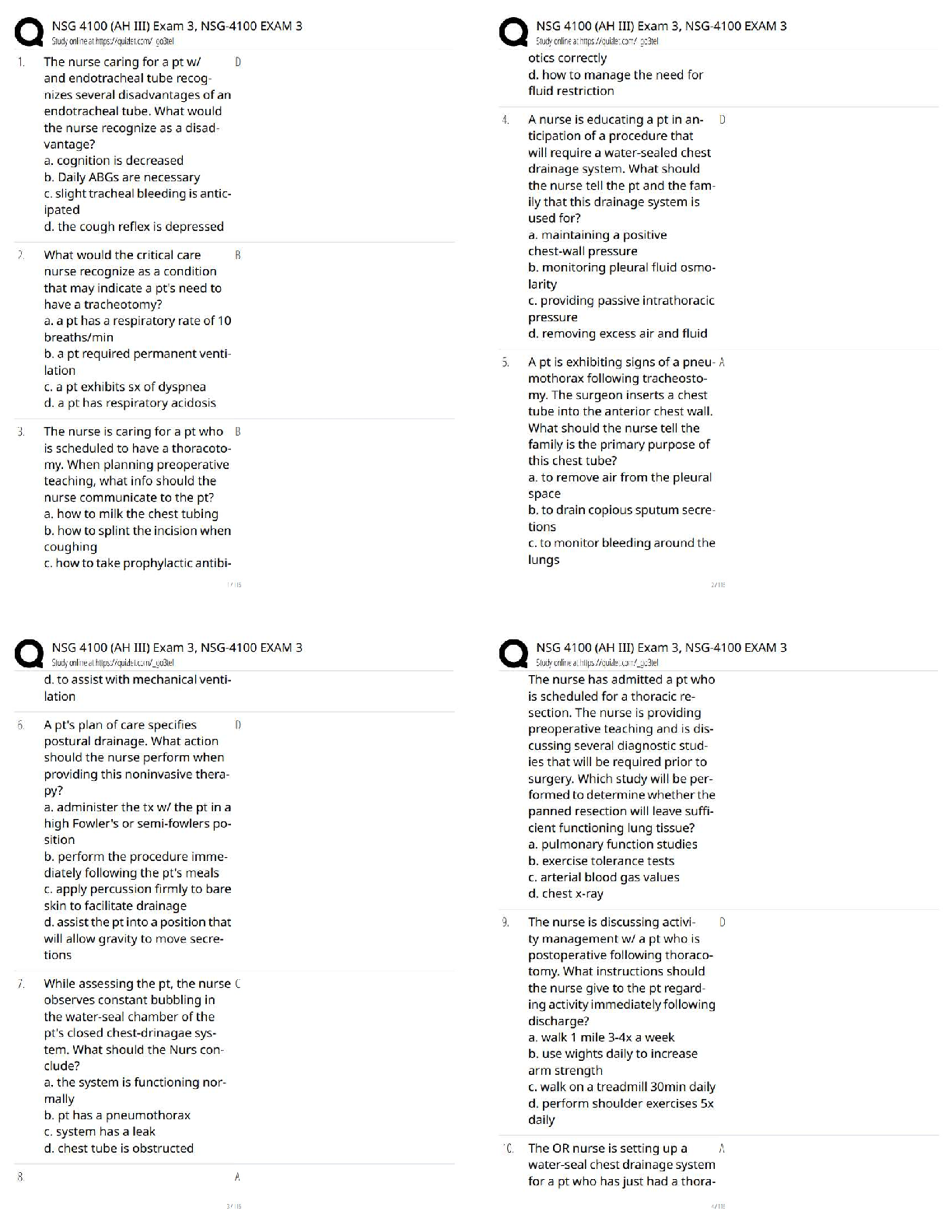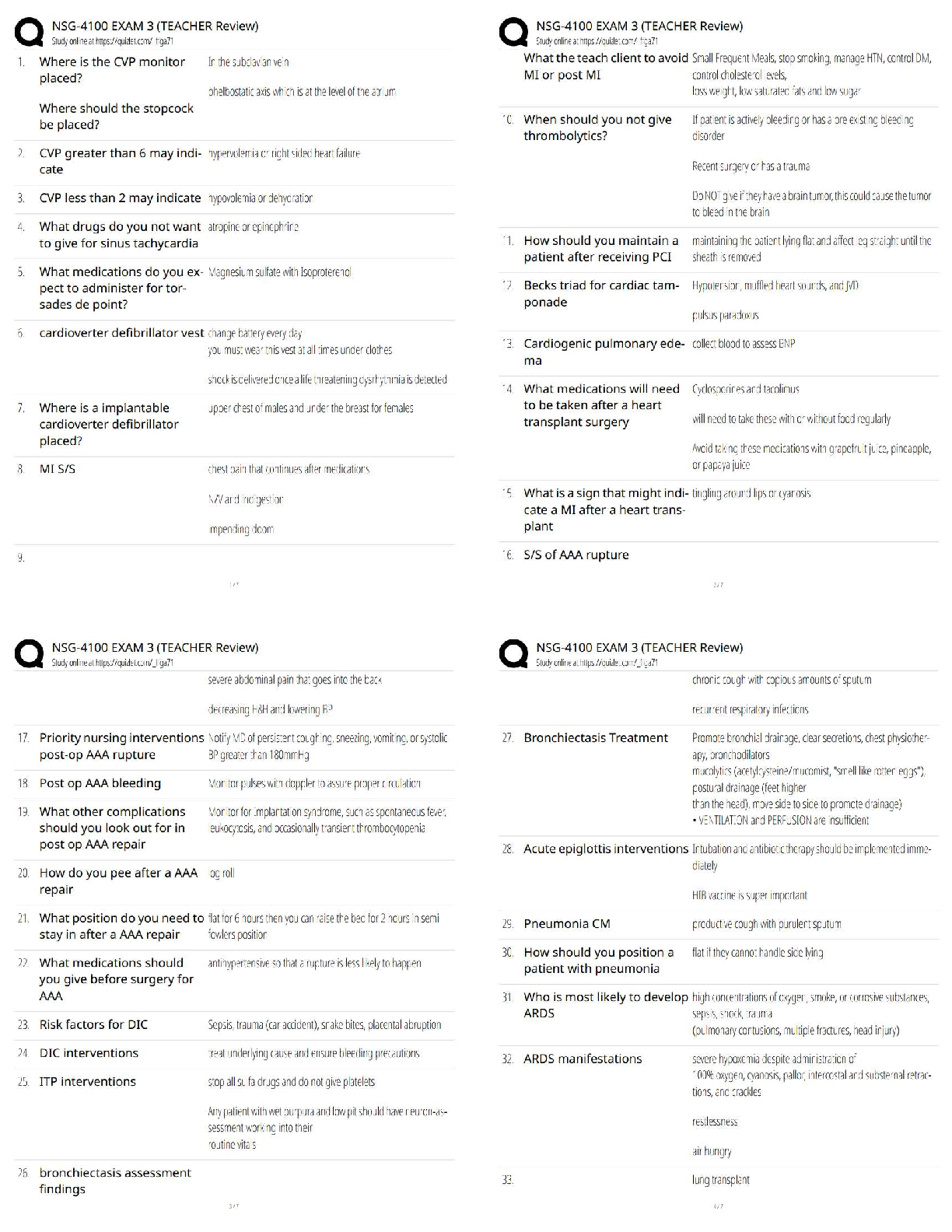COMP SCI 3SD3 Virtual Take Home Examination
McMaster University Final Examination Total: 132 pts
● THIS EXAMINATION PAPER HAS 5 PAGES AND 9 QUESTIONS.
● The exam starts at 12:30 pm and ends at 3:30 pm, i.e. 180 (3hr)
...
COMP SCI 3SD3 Virtual Take Home Examination
McMaster University Final Examination Total: 132 pts
● THIS EXAMINATION PAPER HAS 5 PAGES AND 9 QUESTIONS.
● The exam starts at 12:30 pm and ends at 3:30 pm, i.e. 180 (3hr) minutes (for students
without extra time permissions). This includes the exam time (150 minutes) plus extra
time for technology (30 minutes).
● Please submit the solutions via Avenue using the same procedure as for the assignments.
● Also, just in case, send the solutions via e-mail to
[email protected] .
● Any question during this midterm, ask by sending an e-mail to Ryszard Janicki
(
[email protected])
1.[10] Consider the following scenario: An office is used by several workers sharing a single
printer. As a simplification of a real life scenario, it is assumed that the printer is able to
print any number of jobs, independently of the number of pages those jobs have, before
running out of toner. The toner is replaced by a technician whenever necessary.
a.[5] Provide an FSP description of the above scenario. You must provide also a brief
description of the intended behavior for each one of the processes you define.
Hint: Possible processes for the above scenario are PRINTER, USER and
TECHNICIAN.
b.[5] Provide a Petri nets (any kind) description of the above scenario.
2.[15] Two warring neighbours are separated by a field with wild berries. They agree to permit
each other to enter the field to pick berries, but also need to ensure that only one of them
is ever in the field at a time. After negotiation, they agree to the following protocol.
When a one neighbour wants to enter the field, he raises a flag. If he sees his neighbour’s
flag, he does not enter but lowers his flag and tries again. If he does not see his
neighbour’s flag, he enters the field and picks berries. He lowers his flag after leaving the
field.
a.[8] Model this algorithm for two neighbours n1 and n2. Specified the required safety
properties for the field and check that it does indeed ensure mutually exclusive
access. Specify the required progress properties for the neighbours such that they
both get to pick berries given a fair scheduling strategy. Are any adverse
circumstances in which neighbours would not make progress? What if the
neighbours are greedy?
Page 2 of 5
b.[7] Model this algorithm for two neighbours using Petri nets (any kind).
3.[30] A cook puts burgers in a pot. A client checks if there is at least one burger in the pot, and
if so, the client must take one.
(a)[20] Assuming two clients, this can be modelled as
(i)[12] Is there a trace belonging to process DS leading to an error state? If so, give the
trace.
(ii)[8] We wish a client to obtain exclusive access to the pot. That is, two clients cannot
check the pot at the same time, and when a client checks, he/she must take a
burger (if there is at least one).
Show how to modify the given model such that this behaviour is ensured.
(b)[10] Provide a solution with any kind of Petri nets. Note that the cook cannot put a
burger in a full pot.



